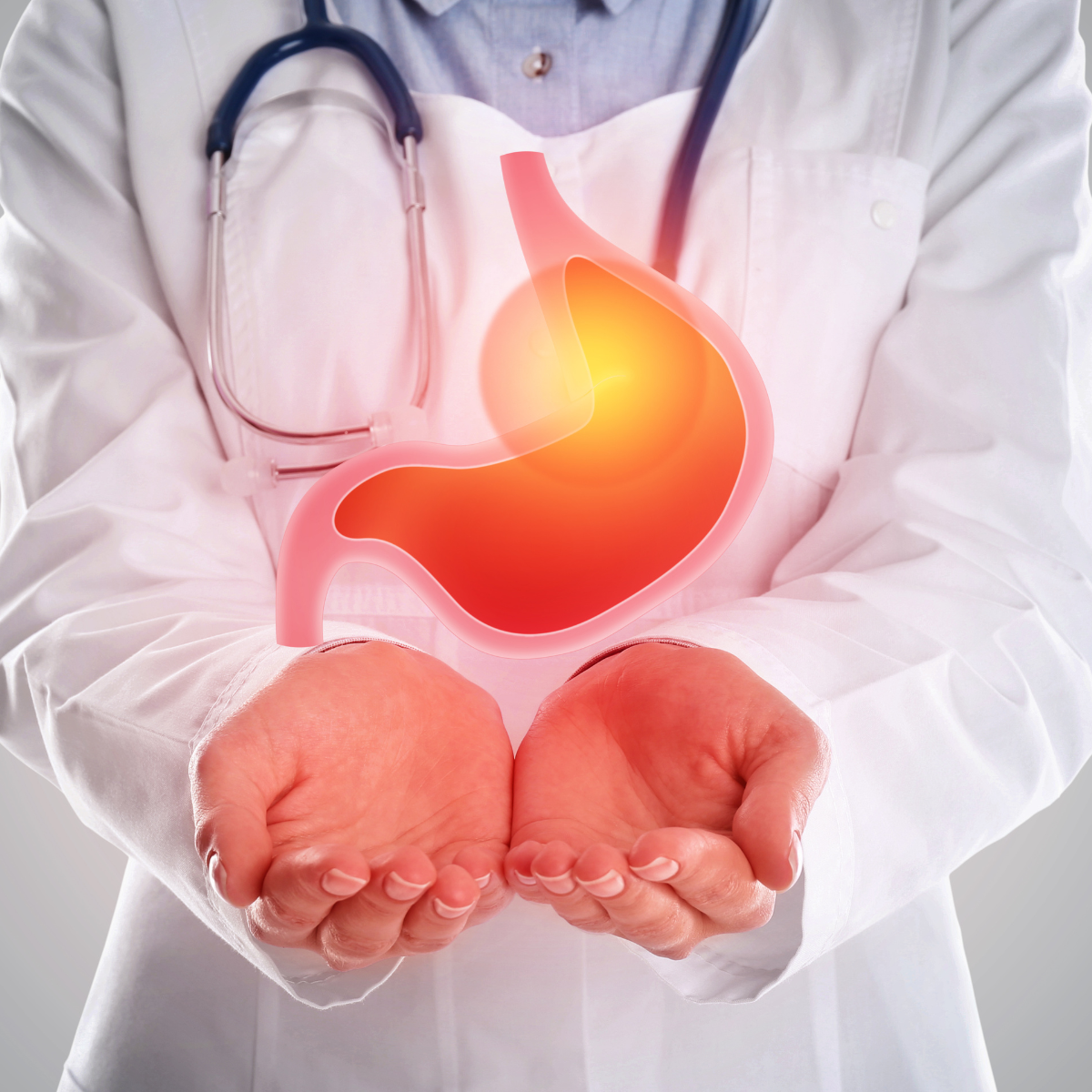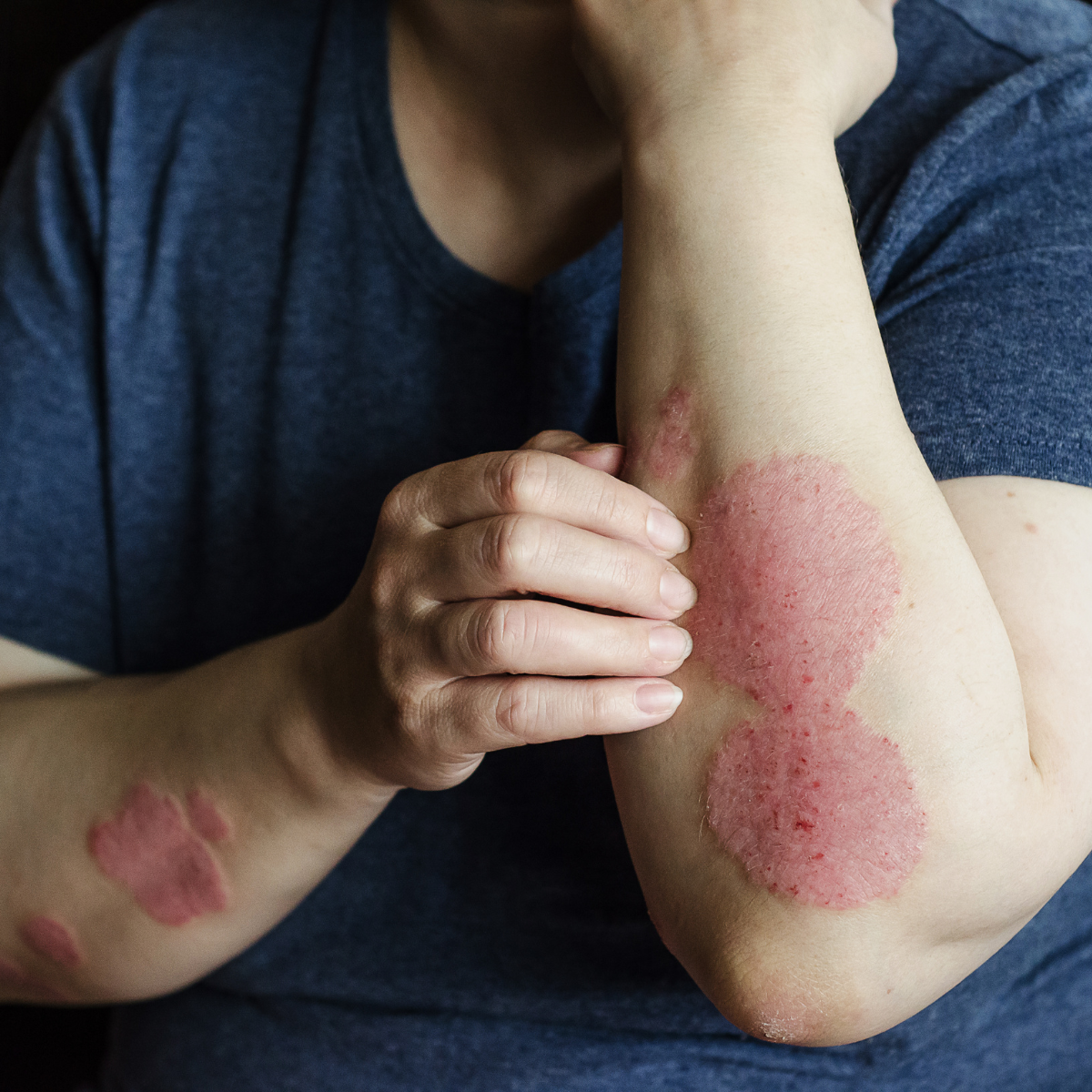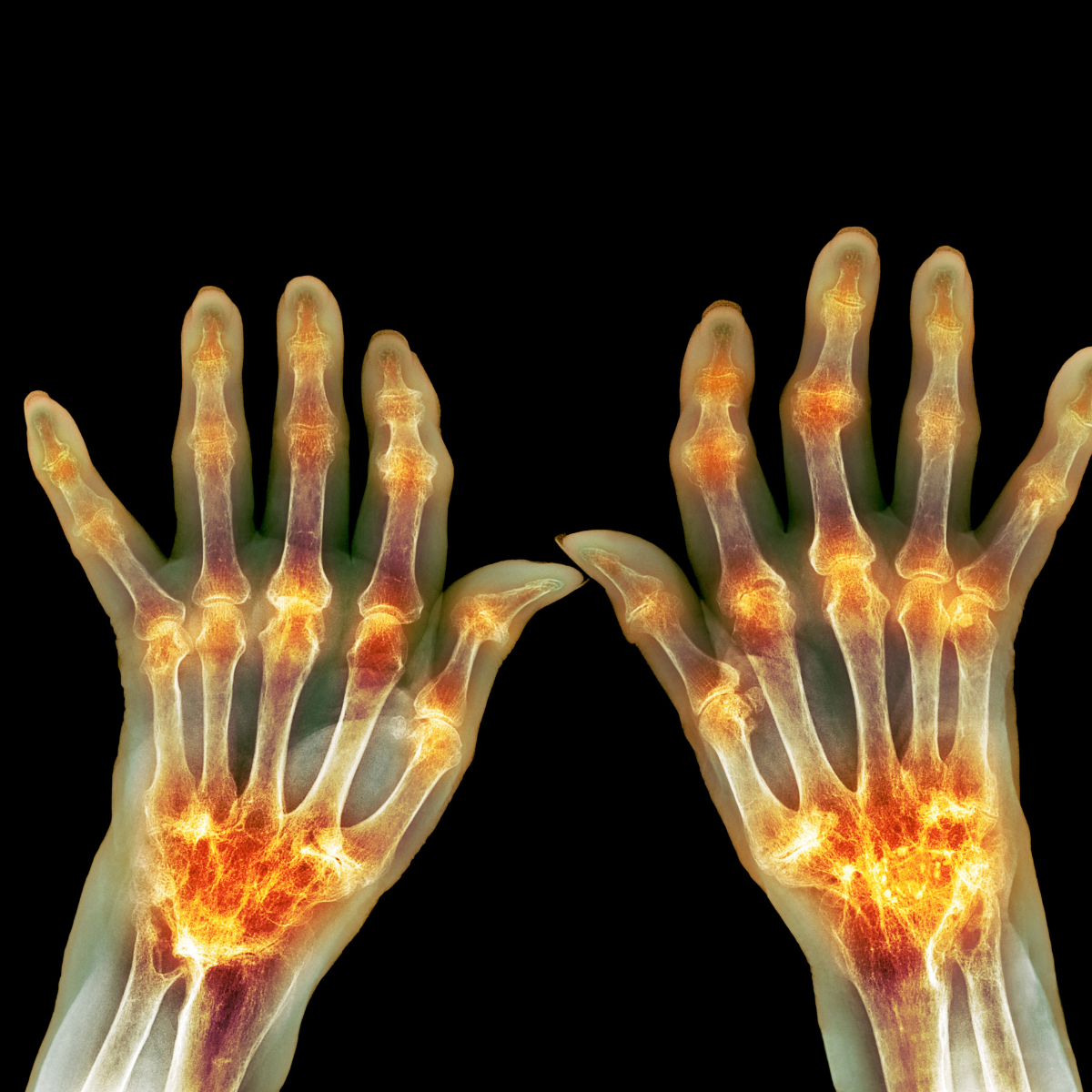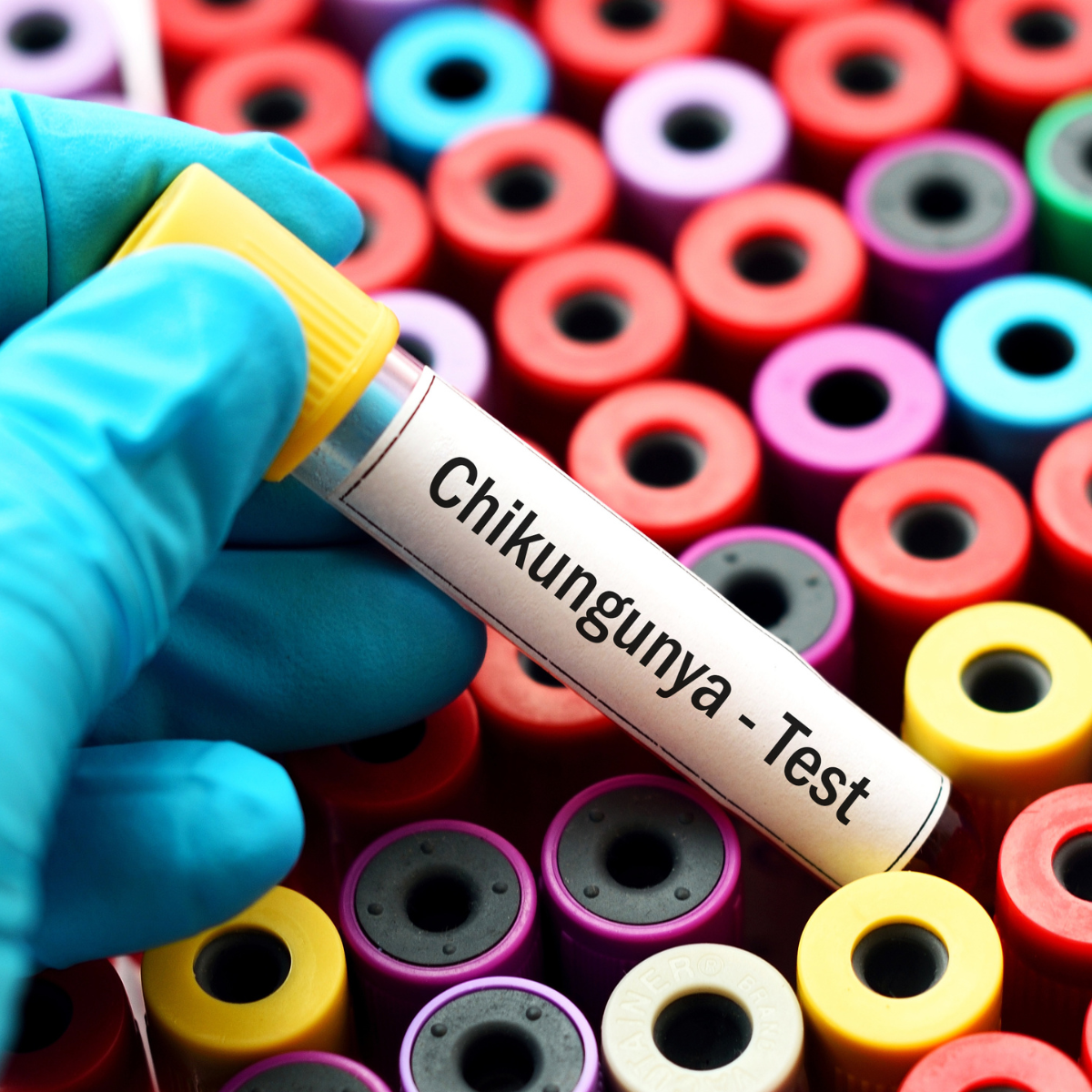
Gastritis
What Is It & Disease Pathology
Peptic ulcers are open sores that develop on the inner lining of the stomach (gastric ulcers) or the upper part of the small intestine (duodenal ulcers). They occur when the protective mucus layer is compromised, allowing stomach acid to damage the tissue beneath .
Inside the Body:
The stomach and duodenum are lined with a mucous layer that shields them from acidic digestive juices. When this barrier is weakened—due to factors like H. pylori infection or prolonged NSAID use—the acid can erode the lining, leading to ulcer formation .
Common Root Causes:
-
Helicobacter pylori (H. pylori) infection: A bacterium that damages the mucous coating, making the lining more susceptible to acid .
-
Long-term use of NSAIDs: Medications like ibuprofen and aspirin can irritate or inflame the stomach lining .
-
Other factors: Smoking, excessive alcohol consumption, and stress may exacerbate symptoms but are not primary causes.
Prevalence:
Peptic ulcers are relatively common, affecting millions worldwide. While exact figures vary, it's estimated that around 10% of the population may develop an ulcer at some point in their lives .
Signs & Symptoms
-
Burning stomach pain: Often between meals or at night.
-
Bloating and belching.
-
Nausea or vomiting.
-
Loss of appetite.
-
Weight loss.
-
Dark or black stools: Indicating bleeding.
-
Fatigue: Due to blood loss.
Note: Some individuals may have ulcers without noticeable symptoms .
Nutritional Approach to Management
Core Dietary Focus:
-
Balanced Diet: Emphasize a variety of foods to ensure adequate nutrient intake.
-
Fiber-Rich Foods: Whole grains, fruits, and vegetables can promote healing.
-
Probiotics: Foods like yogurt and kefir may help combat H. pylori infection.
Foods to Include:
-
Lean Proteins: Chicken, turkey, tofu.
-
Fruits and Vegetables: Especially those rich in vitamins A and C.
-
Whole Grains: Brown rice, oats, whole wheat bread.
-
Low-Fat Dairy: Milk, cheese, yogurt.
Foods to Limit:
-
Spicy Foods: May irritate the stomach lining.
-
Caffeinated Beverages: Coffee, certain teas, and sodas.
-
Alcohol: Can erode the mucous lining.
-
Fried and Fatty Foods: Slow digestion and increase acid production.
Note: Individual responses vary; it's essential to monitor and adjust based on personal tolerance .
Key Nutrients to Focus On
-
Vitamin A: Supports mucous membrane health. Found in carrots, sweet potatoes, and spinach.
-
Vitamin C: Aids in healing and combating infections. Found in citrus fruits, strawberries, and bell peppers.
-
Zinc: Essential for tissue repair. Found in meat, shellfish, legumes, and seeds.
-
Probiotics: Help restore gut flora balance. Found in fermented foods like yogurt and kefir.
Myth: Milk can soothe ulcers. While it may provide temporary relief, it can also stimulate acid production, potentially worsening symptoms .
Lifestyle Recommendations
-
Regular Physical Activity: Engage in moderate exercises like walking or yoga to reduce stress.
-
Adequate Sleep: Aim for 7-9 hours per night to support healing.
-
Stress Management: Techniques like meditation, deep breathing, or journaling can be beneficial.
-
Avoid Smoking and Limit Alcohol: Both can exacerbate ulcer symptoms and hinder healing .
Monitoring and Medical Consultation
What to Track:
-
Symptoms: Note any changes in pain, digestion, or appetite.
-
Dietary Intake: Maintain a food diary to identify potential triggers.
-
Energy Levels and Mood: Monitor for fatigue or mood fluctuations.
Relevant Lab Markers:
-
H. pylori Testing: Blood, stool, or breath tests to detect infection.
-
Complete Blood Count (CBC): To check for anemia due to bleeding.
-
Stool Occult Blood Test: Detects hidden blood in stool samples .
Regular consultations with healthcare professionals are crucial for effective management and monitoring.
Book a Consultation
If you're experiencing symptoms or have concerns about peptic ulcers, consider booking a consultation with our nutrition experts. They can provide personalized dietary guidance and support tailored to your needs.
📅Click here to Book your free 30-minute consultation
What to Expect from the Consultation
-
Comprehensive Dietary Assessment: Review of current eating habits.
-
Personalized Nutrition Plan: Tailored recommendations to support healing.
-
Lifestyle Modification Guidance: Strategies to manage stress and improve overall well-being.
-
Ongoing Support: Regular follow-ups to monitor progress and make necessary adjustments.
Educational Resource
For a deeper understanding of peptic ulcer disease, watch our detailed video: Watch here











